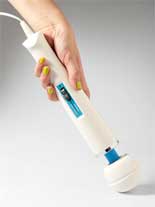

Electronic Muscle Massagers
When people experience excruciating muscle pain, they turn to methods to help them deal with the medical condition. The most popular methods to overcome muscle pain are physical therapy, topical ointments, orally ingested pain drugs, and classic massages. However, advanced technology offers a brand-new way of shedding away muscle pain without hiring an extremely expensive massage therapist. An electronic muscle massager is the most efficient and valued electronic muscle massage device on the market. It incorporates unique mechanisms that slowly press and roll over the user's skin.
Most people carry a great deal of tension in the neck or leg area of the body, and they frequently experience unbearable pain. A specialised electronic massager will release all that negative tension, helping the user relax. Does an electronic muscle massager work? Yes, it does, as long as it is used properly.
Advantages of electric muscle massagers
Handheld electric massagers are very popular these days. People fondly use these devices to relieve stress and ease tensed, achy muscles. They can be found in nearly all retail shops and pharmacies. Handheld electric massagers come with complicated usage instructions and various safety guidelines. It is essential to consider these guidelines for your protection. For instance, the unit must be moved constantly and not held in one location for too long. Regrettably, most people do not read the instruction manual and rarely follow the basic safety guidelines. The extremely litigious nature of our culture has most likely made individuals insensitive to safety measures. Everyone seems to assume that hazards are exaggerated to protect users from frivolous lawsuits. |
 |
Case study
Wang & Grant (2004)[1] presented their research paper about a terrifying horror story to make people aware of how important it is to use electrical appliances and massaging devices.
The report tells the story of a 38-year-old lady who smoked cigarettes for 15 years and was frequently suffering from migraines. She experienced excruciating pain from the right side of her head to her neck. Over-the-counter painkillers proved useless, and after a couple of days, a friend helped the lady massage the affected area with a handheld electric massager. She focused on the area below the angle of the jaw and held the device there for more than twenty minutes.
Five days after the massage, the woman was diagnosed with left-sided paralysis and dysarthria (a severe speech disorder in which the patient cannot pronounce words, although the meaning and linguistic content are typical). Doctors confirmed that the cause was an internal carotid artery dissection, which triggered a massive ischemic stroke.
A widespread misconception about pain is that "regardless of where it is, just keep rubbing, and you will feel better". By doing precisely this, a young woman with no stroke risks suffered a disabling heart attack that changed her whole life. Therefore, the warnings to be careful when you massage the area near the carotid artery and always keep the device moving are severe and have significant consequences.
The story should caution anyone using a handheld electric massager. Read the usage instructions carefully, and never use the massager in forbidden areas of the body. People must know the consequences and understand the risks of misusing these devices.
Other types of muscle massagers
Electro-acupuncture is an additional type of electric muscle massage. Also known as PENS (Percutaneous Electrical Nerve Stimulation), it involves combining acupuncture principles with an electric device that delivers electric pulses into the patient's muscles. The treatment improves general well-being, and research by Ling Ma (2009)[2] found it treats vomiting symptoms in patients undergoing chemotherapy.
On the other hand, an electric muscle massage chair has been widely used for years in patients struggling with unbearable body pain. This mechanism aims to relieve soreness and help the muscles relax. For example, these therapeutic chairs are often found in spas, where clients can undergo a relaxing massage during a pedicure session.
To conclude, an electronic muscle massager can have excellent results on people's bodies if the device is used correctly. Rather than spending a lot of money on massage sessions at a salon, investing in such a device is cheaper. Yet, it is paramount to read the instructions manual for optimal results. Opt for a low-intensity massager and only amplify if the body can handle increased power. Do not use the device for extended periods in the same body area because you risk doing more harm than good.
References
- WANG, N. and GRANT, A. (2004). Carotid Dissection Associated with a handheld electric massager "Stroke", South Med J, 97 (12), p. 1262-1263
- MA, L. (2009). Acupuncture as a complementary therapy in chemotherapy-induced nausea and vomiting, Proc (Bayl Univ Med Cent). 22(2), p.138–141
Page Reference
If you quote information from this page in your work, then the reference for this page is:
- MORGAN, J. (2013). Electronic Muscle Massagers [WWW] Available from: https://www.brianmac.co.uk/articles/article146.htm [Accessed
About the Author
Jefferey Morgan is a professional blogger and content writer. He is also an avid health enthusiast and works for a site called hitachiwand.co.uk, which provides a wide range of electronic muscle massagers. He loves to swim, hike, and run whenever he finds the time.